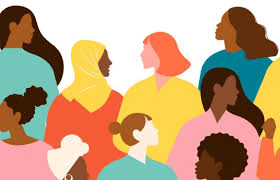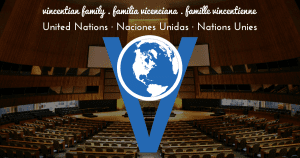 The COVID-19 crisis has brought about many worldwide discussions as inequities in the global human rights arena have become even more apparent. In a two-part series, we highlight reports in two different hemispheres that focus on women in the COVID-infected world.
The COVID-19 crisis has brought about many worldwide discussions as inequities in the global human rights arena have become even more apparent. In a two-part series, we highlight reports in two different hemispheres that focus on women in the COVID-infected world.
Part I: G7 Nations called upon to uphold gender equality and the right for a better future for women in the workplace
The International Labor Organization (ILO), UN Women and the European Union have called on G7 nations to put measures in place that will promote gender equality amid the COVID-19 crisis.
At a virtual high-level meeting on May 14 on COVID-19, including government ministers, CEOs, business associations, trade unions, civil society, global women’s movements and academia from G7 countries (Canada, France, Germany, Italy, Japan, the United Kingdom and the United States), participants agreed that women’s economic empowerment should be part of the crisis response.
The pandemic has exacerbated pre-existing inequalities and called increased attention to injustices in social, political and economic systems including access to health services and social protection. Women with care responsibilities, informal workers, low-income families, and youth are under particular pressure. Since the crisis began, there has been a significant rise in domestic violence.
Collectively this group has called upon the G7 nations to:
- Design and implement strategies to address COVID-19 related gender issues that are aligned with international labor standards
- Expand and invest in universal social protection, including effective and affordable access to quality health care, and immediate income and food support.
- Ensure that support to businesses targets women-owned micro, small and medium-sized enterprises
- Provide health care and other front-line workers with adequate occupational safety and health equipment, training and decent working conditions.
- Allocate additional resources to address violence against women and girls in COVID-19 national response plans.
- Invite businesses to commit to equal pay for work of equal value and zero tolerance against sexual harassment in workplace policy responses.
- Encourage financial stakeholders to promote gender equality as an effective crisis response.
- Design economic recovery packages that recognize and place a value on unpaid care work and care jobs and provide adequate levels of quality childcare.
- Ensure that girls are included in learning and skills development programs during and after the crisis.
- Collect gender-related statistics and data to inform crisis response and recovery plans.
“The COVID-19 pandemic has shown the always essential role of the working heroes of this pandemic,” said ILO Director-General, Guy Ryder. “People who are usually invisible, unconsidered, undervalued, even ignored. Health and care workers, cleaners, supermarket cashiers, unpaid care-givers in their homes and communities – a large majority of women, frequently migrant workers, too often numbered among the working poor and the insecure.”
Natalie Boone is the AIC NGO Representative to UN-NY








0 Comments